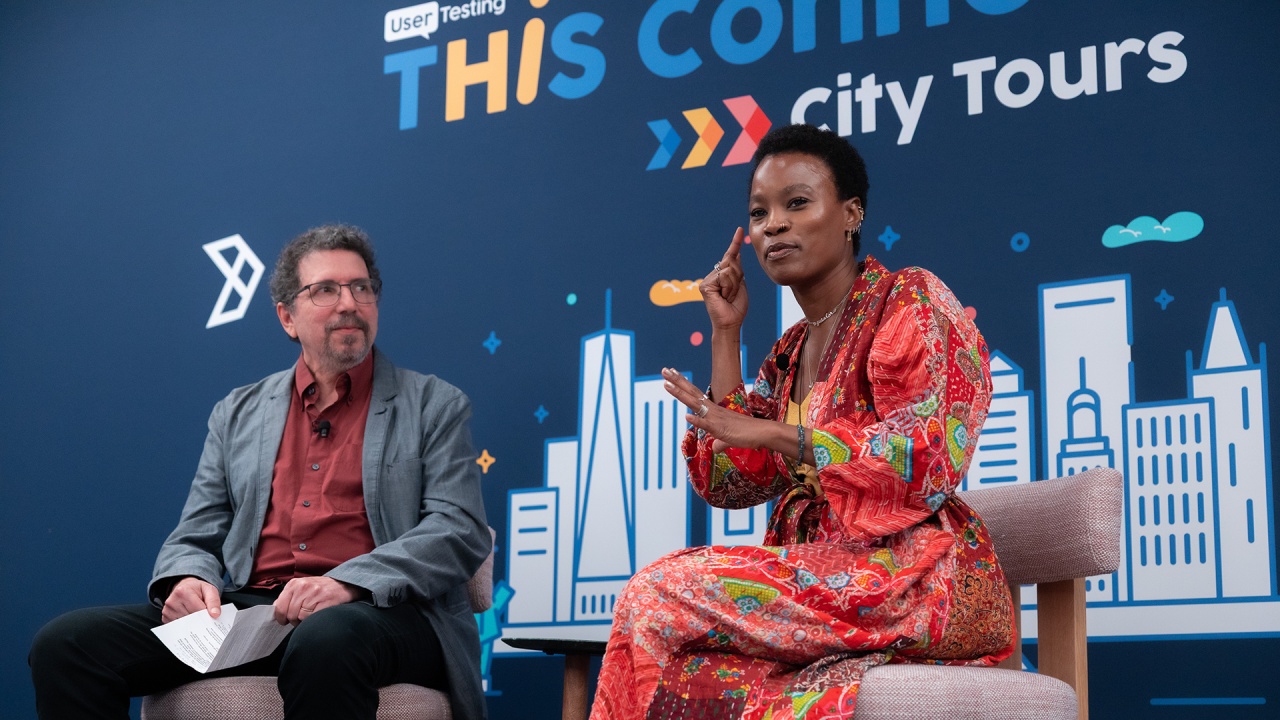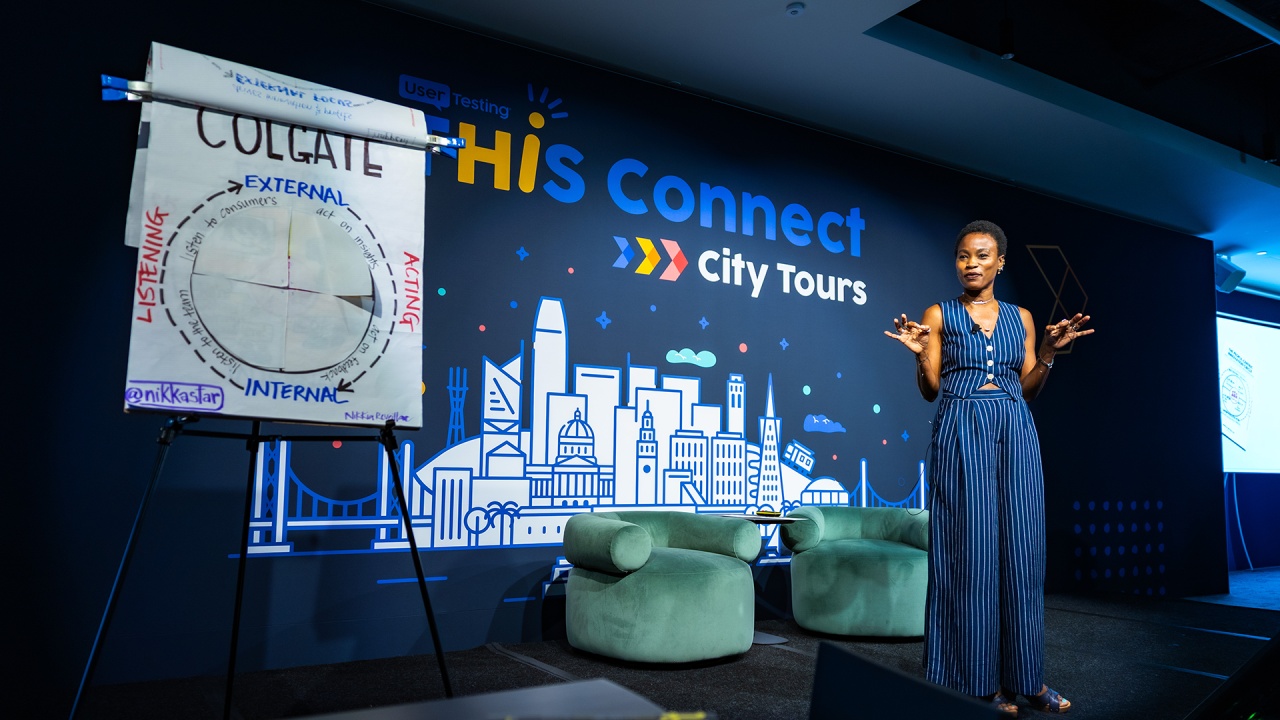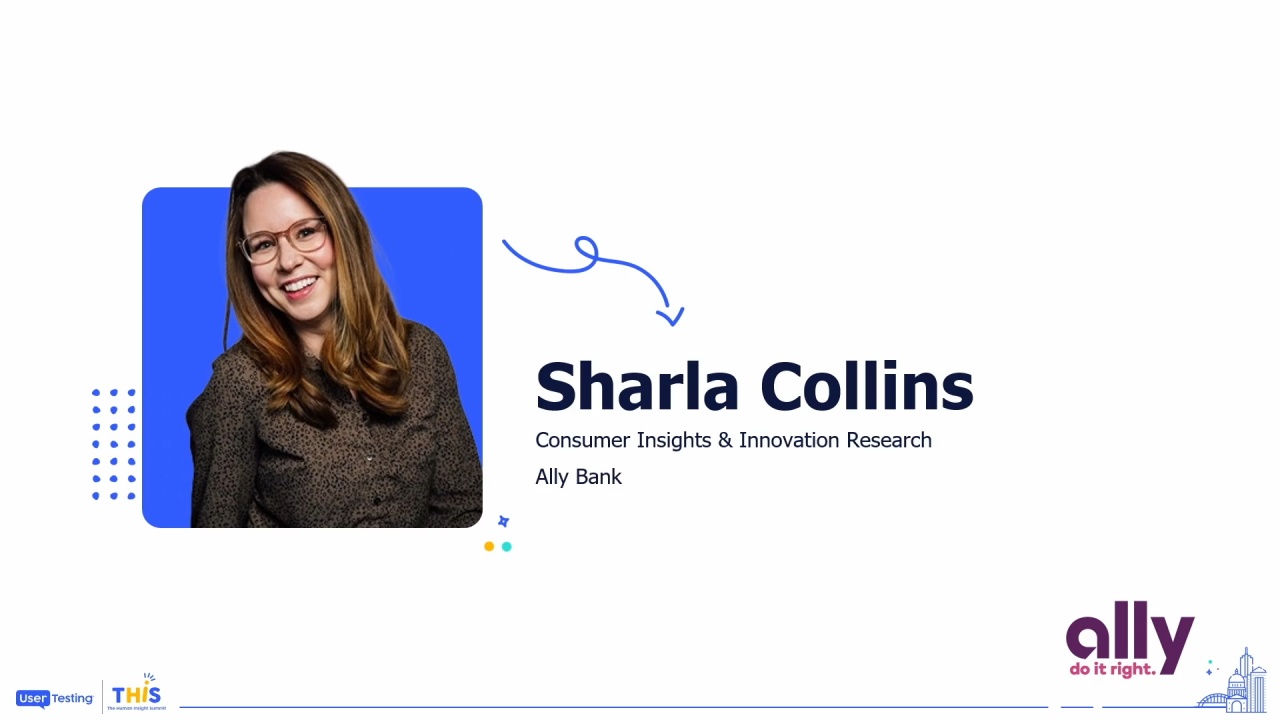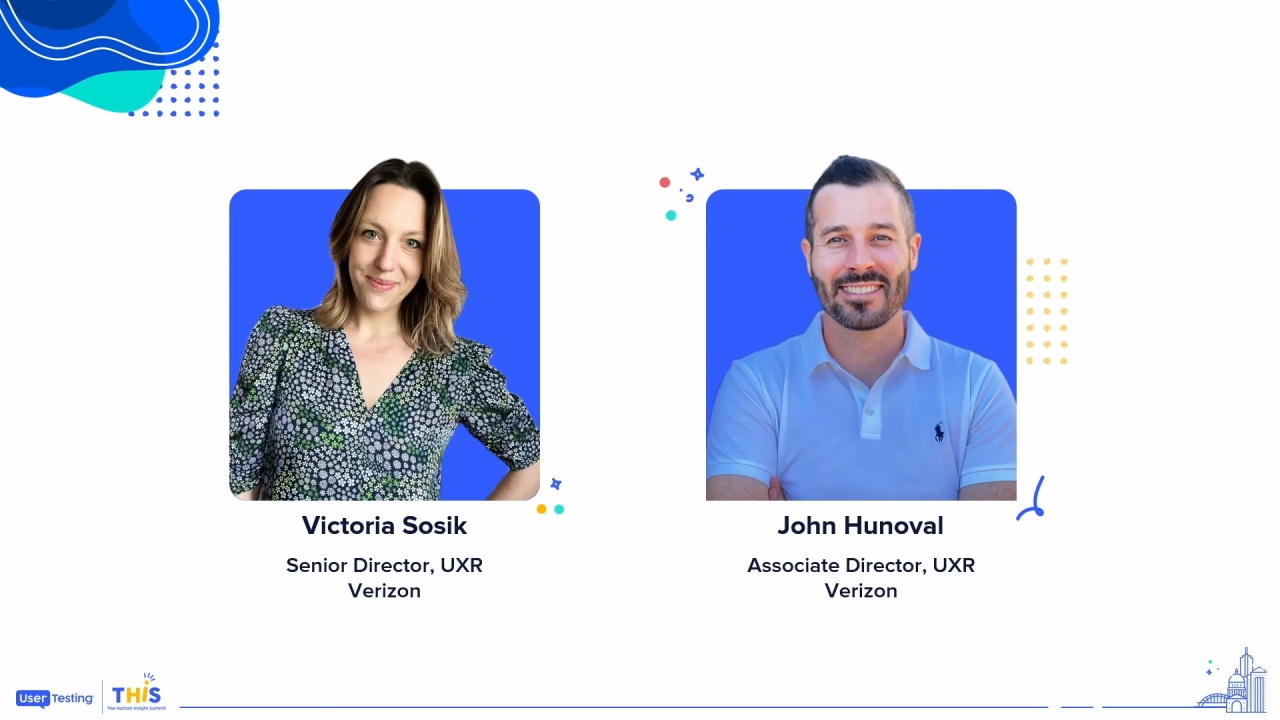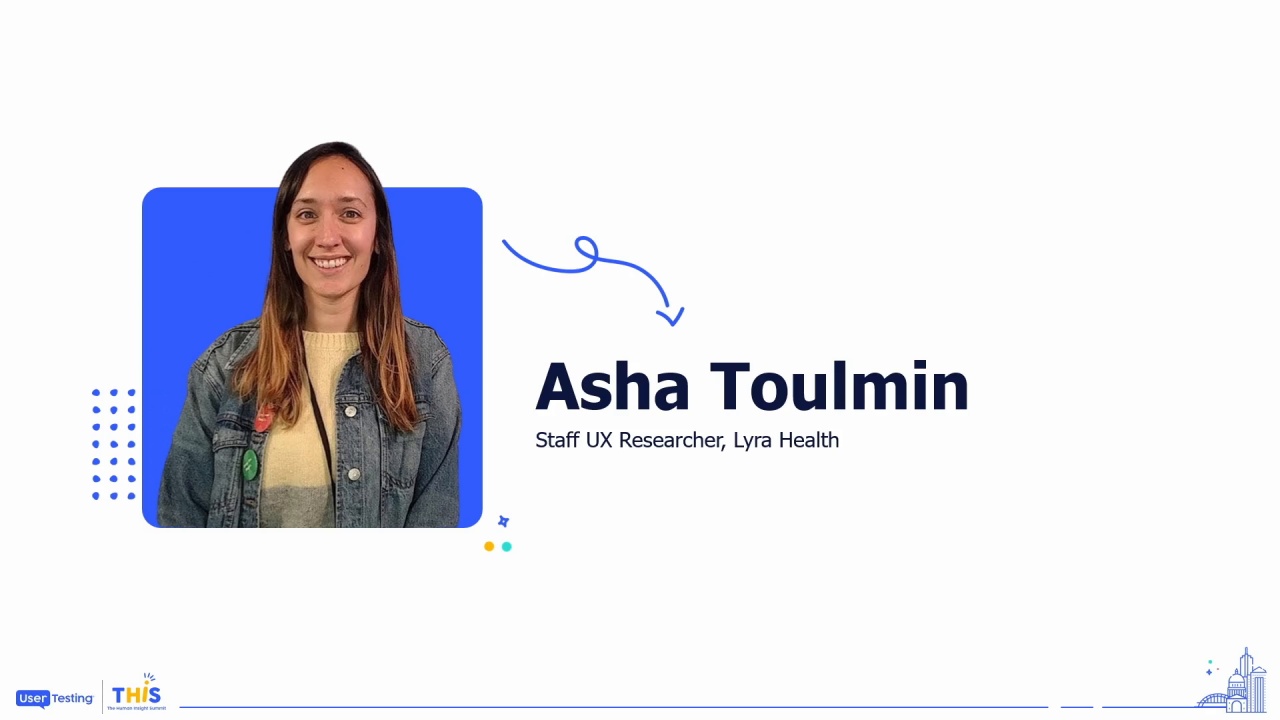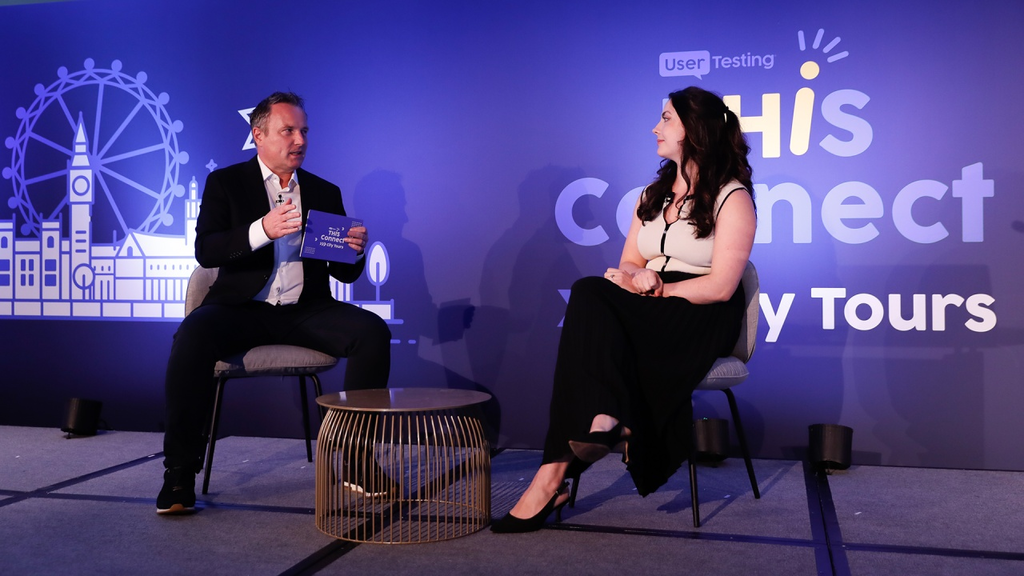
Fireside Chat: Katie Zibert, L’Oréal Paris in conversation with Bernard Marr, Futurist and International Best-Selling Author
Katie Zibert
Senior Manager, Digital Products & Experiences, L’Oréal Paris
Bernard Marr
Futurist and International Best-Selling Author, Bernard Marr & Co
An inside look at how L’Oréal Paris brought AI innovation to life through human insight, and what it means for the future of customer-led product development.
Hello. Hi. Thank you so much, Katie. That was truly fascinating. As someone who is working with AI every single day, I think this is AI is the most transformative technology that humans have ever had access to.
What I love about this use case that you've just outlined is that you're implementing an AI tool using insights that you're getting from another AI. But at the core of all of this is the human, is the human that uses and tries the tool and is ultimately your customer. So I I love this. So what was the original spark...
Hello. Hi. Thank you so much, Katie. That was truly fascinating. As someone who is working with AI every single day, I think this is AI is the most transformative technology that humans have ever had access to.
What I love about this use case that you've just outlined is that you're implementing an AI tool using insights that you're getting from another AI. But at the core of all of this is the human, is the human that uses and tries the tool and is ultimately your customer. So I I love this. So what was the original spark or the moment the the consumer moment that you have actually, we need an AI beauty tool?
I think that's a really interesting question because I think that's always been the consumer problem. Right? That there's so much on the market, and it's continued to just get more inundated, more information, more this, more that. And we continue to try to solve it. We have on our websites already a bunch of quizzes, virtual try on tools, but it was really like this, oh my gosh, we can solve this in a better and different way using AI. Like the second that it started to come out and be as we continued to work on it, this was a couple years in the making that we finally were like, Okay, now we're ready to go. So yeah, solving finally, like, using new technology to help to solve, like, an age old problem.
Yeah. I can't wait to see what's coming over the next ten years with all of this.
Obviously, there is there are lots of cultural challenges. There's so many so much diversity in the beauty space.
Culture, age, skin tones, you've highlighted some of those. How do you make sure that the tool actually respects all of those?
Yes. So that was very, very important to us and one of the main pieces of user testing. So we recruited and made sure that as we looked at who we were testing, it was a representative demographic of, again, all genders, ages, ethnicities, so that it wasn't just a small group of individuals, that it was current consumers, prospective consumers. And as we were going through, we used employees as well just to make sure that it was capturing and saying, okay, we can read all skin tones. We can understand, like fine lines on light skin and dark skin. We can really make those decisions. So it was some just, you know, continuing to test and test as we went through it to make sure that it really gave us all the recommendations that work for us.
And you talked about the fact that this was a big team effort.
Yes.
What were some of the internal challenges that you needed to overcome to really launch this tool?
A lot. I think, I mean, one thing too, somebody came up to me last week. I was at disconnect in, oh my god, disconnect, so funny, but the disconnect in New York and somebody had came came up to me and was talking to me about beauty genius and she was saying, oh my company, we can never do that. And I was like, I thought that we couldn't do this either.
But really just the perseverance and taking it and saying, like, no, we are going to get this done was the biggest piece of all of it. We had a lot of points where I was like, do we go, no go? And even at the no go, it was like, we have to go. Like, we are so passionate about this.
So big challenges for a lot of, one, making sure we did it right. We didn't want to send it to the market and send it to the world and then it be just a flop, right? Or telling people wrong things, like really not having that expert, that voice of the brand as well. I think a big piece was definitely the challenges with legal and balances with leadership of I mentioned requiring a user to sign in.
We obviously democratize for beauty for all, beauty for each. So removing that was a big one, as well as partnering with our legal team to make sure that we are doing everything, always continuously, like, being proactive about how we're respecting our consumers and making sure that they understand the usage of their data.
You also worked really closely with the technology team and the UX team. What did you learn from working closely with them?
I learned, that it's very fun to be wrong in this context. Don't tell my fiance I said it's fun to be wrong. But it's very fun to be wrong at work in this context. Like when you see things and they were like, oh, we thought that would be it.
Like it was so exciting for all of us just to not be right. And we all were like, oh, now we'll change it. And it sparked a lot more innovation. So it was really fun to have that collaboration of, like, oh, my goodness.
And, like, having the respect as we all, like, went through and, you know, tried it ourselves and tried it on users, tried it on, like, different people, like friends and family, our coworkers, colleagues.
Oh, you know, that's a good point. And having those different sparks of, like, oh, this oh, yeah. They get here. They don't know what to do. So, yeah, being wrong helps you learn a lot.
Very good.
Do you have any examples of really like, the one with the moisturizer really stands out to me because that was not a colleague.
It was somebody who was, like, on the platform. And I was like, I feel so bad. Like, I really hope you never go and buy this moisturizer and tell us that.
And a lot of it too, I think another piece, was, like, debating somebody was like, no. We don't wanna have the prompts. Like, people are gonna come to this, and they're just gonna know. Like, they're gonna have all their questions ready. Like, they've had these questions for years. And then I was like, okay.
But really then seeing that, it's like they get to it, and they're like, okay. What do I do? Like, people just really it's a new tool. It's a new experience.
You wanna try it out, but at that time, you're paused. You're paralyzed. You're not, you know, we're still getting people into it, so we don't know, like, what they don't know. So really adding those, their prompts there to help you out.
People really like we were like, oh, do we need a profile? People don't like a profile, but then people love a profile of, like, oh, that's me. That's mine. So we're like, oh, let's make the profile better.
You know, really kind of draw it out. So a couple of things that we were thinking weren't as important, were really good. Like, what types of content? Do they want videos or pictures?
There's a lot of desire for, like, adding more video expert advice as well. So a lot of different fun things that just sparked as I go through this. Yeah.
Yeah. Nice. And do you have any particular piece of user feedback that you got that really made you rethink the experience people had in the app?
I think as we went through, a lot of them were, rethinking the experience. It was a lot of watching them sign in, and they all had it wasn't even a piece of they told us. It was like we had to look at what was happening, and then I used this phrase, solve the right problem.
These people that were testing were going to get through it. I think a lot about the sign in piece because that's like we've had so many people get to the tool and just not use it because they're like, this is too many steps. But in our user testing, we noticed that they were going. Like, they were still like, Okay, I clicked this button, I clicked that, I've agreed to this, like, done all these things.
So it was really making sure that still that we watch that and we saw, we're like, Okay, these people are doing it, but is everybody going to do it? And then when we, you know, went live at first, they weren't. They were like, okay. I'm interested, but I'm not enough interested to click seven buttons.
You know? You get there, and then now what?
So I think that was a really big one, a part of it too.
Yeah.
I think it's fascinating because over the next few years, we will see millions of new apps Yes.
Integrating AI. And I think it's so vital that we use insights from actual users to refine them and not just launch them.
In terms of feedback that you received, how has this helped you, the user feedback, helped you shape the tone of voice in the app or the type of recommendations that you deliver to your customers?
Yeah. It's really just helped us to either validate or help to further, again, refine what recommendations we're giving, especially too as new beauty topics and things enter the market. We wanna make sure that we're, like, being proactive with that and having, you know, a say in opinion from the brand perspective.
You know, making sure that brand voice comes through. L'Oreal Paris is the largest beauty brand. Making sure that, like, that tone of voice, that kind of connection of the products and the elegance and you know, beauty for all messaging still comes through while, like, not I think the other thing too was that we weren't if you go through it now, you're going to go through a few steps of messages before you really get a recommendation. So it became less salesy, became more for people because also people were like, oh, at first, like, as we want to really be this authority for, you know, advice and information as opposed to just another way to, like, Google shopping ad.
Right? We really want to make sure that it was something that, okay. I understand this now, and now can you help me find this product? Like, what products do you have for me?
Yeah. I like the idea of having the app because it helps you get closer to your customers Right. And also to help you collect proprietary data, which is more important than ever in the age of AI. Hundred percent. You talked about the fact that you previously relied on on Google Insights. Yes.
But we are now seeing that people move to chat apps for insights. They work on they they they a lot of conversations take place on TikTok and Instagram.
So what you've done is you've brought this back into an app and have no direct access to your customers and can listen to those conversations. So how has this broad, basically, more customer centricity to your organization?
Yeah. I think it's been really great to see what they're saying, like, how what they're asking just beyond, like, the top tail searches. Like, all of the long tail information is so amazing to have access to. We learn a lot about their challenges.
We learn a lot more about, okay, like, what else is there that's, you know, confusing to them? Oh, okay. They're really, like, somebody misses this product. Like, I really missed this.
Where is it? Okay. Like, that was reformulated into that. Like, how can we continue just to further help them?
And it's, like, elevating the, you know, consumer, like, help chat. You know? Like, they're coming to us for that information. So it's been really fascinating to see.
Like, I my dream is for it to be like a, you know, this is where you come when you have your beauty question and you know that you'll get the authoritative advice, to help cipher through, like, the TikTok influencers, this, the that, and also then be able to have the, okay, that's really cool, but I don't think I'll look good in that. Or, like, is that right for me? Like, do I need this? And come being like, hey, maybe you don't need that.
And I I love this idea that you have an AI enabled app, but you're also now using AI to gain user insights.
Yes.
Do you wanna It's give us some examples of how this works?
Yeah. It's very, like, it's very meta. Like, being, like, okay. I'm using AI and AI to get more AI insights.
But, I mean, we're still in the early stages, so I don't even think we know right now the whole potential of what we can potentially unlock and learn from this. But we've definitely learned a lot about our consumers again, like our needs. We're utilizing, like, okay. We have all this information now.
Okay. What do we need to do to improve the tool? Like, what other questions, like, getting to know our consumers that we have there and, like, kind of a new age loyalty as well. So a lot of different exciting things that we're learning just from, like, having this group of people who are, you know, starting out to be you know, it's still new, so starting out to be beauty genius loyalists.
And having launched this tool in externally now and internally gone through this whole process, how has this reshaped how L'Oreal Paris approaches this whole customer experience and builds future customer experiences?
I think we've established to, like I think, you know, we were talking before, like, digitally, you're just, okay, we have to go. We have to go. But to take the pause. Right?
To take the pause, to ask, to refine what we can upfront so that when it does go live, we're, like, being proactive. We're a few steps ahead. We're anticipating things. And then understanding that, you know, that might not still be perfect.
You know, once we go live, we're going to continue to learn things as it scales. There's going to be newness. There's going to be more. Just continuing to be open, to growth.
Like, open to failure, open to constant change, and really, like, partnering across and defining the product roadmap in a way that's not just led by what we think, but it's led by what the consumers are telling us to.
Okay. You mentioned product roadmap. As a futurist, I always want to know what is next. So what's next for Beauty Genius, but also AI more broadly within L'Oreal Paris?
Paris? I think for Beauty Genius, again, it's like we're we're figuring it out as we go. My manager uses the expression, like, we're building the foundation as we fly, which is really what we're doing. I think, really, the goal would be definitely to continue to expand it.
Like, we have so many other brands within L'Oreal as well. So unlocking that would be so fascinating and allow consumers to, you know, learn about everything under the sun, not just, the L'Oreal Paris brands, which is a lovely brand, but, the best brand. But, making sure that they have that, authority and choice again across all the products. But, again, just continuing to see where it takes us.
I think, yeah, you're a futurist, and I think it's so, like, just being comfortable and, you know, okay. I don't know what's happening, but, like, today will be one thing, tomorrow will be the next thing, and really being, like, as proactive as we can, but understanding, you know, we'll still need to be reactive too.
Very good point. Thank you very much, Katie. Fascinating.
Thank you so much. Appreciate it. Thank you.
